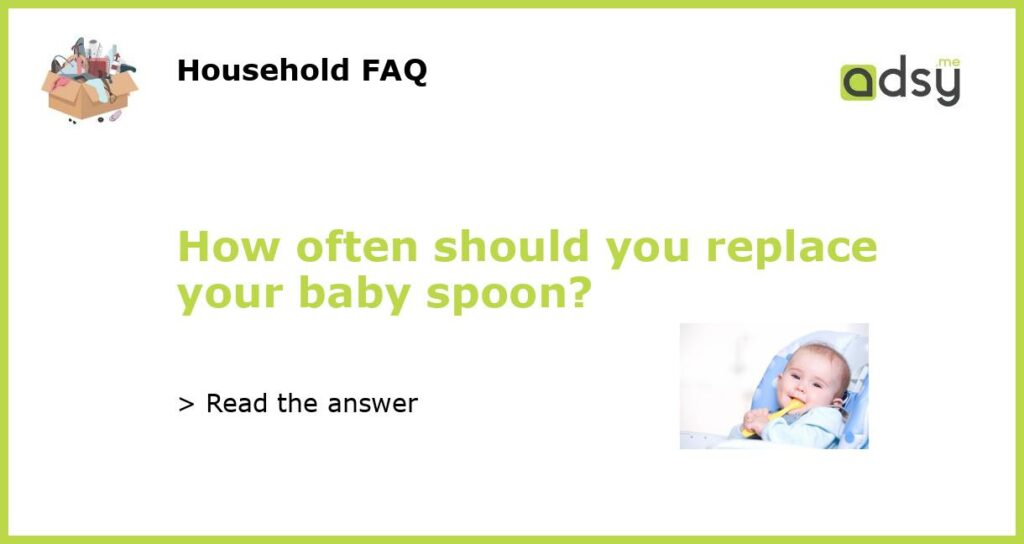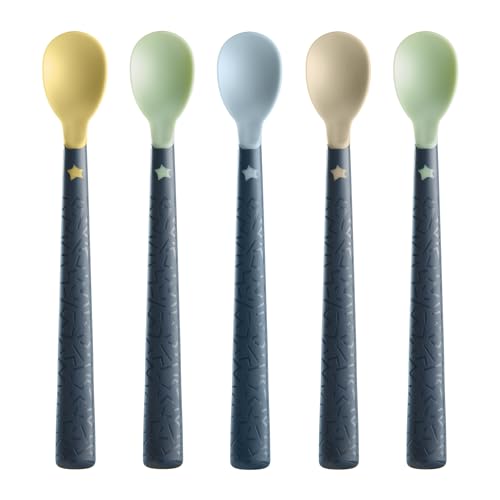The Importance of Baby Spoons
As a new parent, one of the things on your mind is ensuring that your child receives proper nutrition. Whether you are feeding your child with breast milk or formula, introducing solid foods to their diet is a significant milestone. However, many parents often overlook the importance of using the right spoon to feed their child. Baby spoons come in various shapes, sizes, and materials, and the question of how often you should replace them is one frequently asked by parents.
The Lifespan of Baby Spoons
There is no specific timeline on when you should replace a baby spoon. However, certain factors can determine the spoon’s lifespan, such as the material it is made from and its usage. Plastic spoons are prone to cracks and scratches over time, which can create spaces for bacteria to thrive. Meanwhile, metal spoons, such as those made of stainless steel, are more durable but can still wear out with frequent usage. Experts suggest that replacing baby spoons every two to three months is ideal to ensure that they remain in good condition and free from any potential bacteria build-up.
Signs to Look Out for When Replacing Baby Spoons
While the timeline mentioned above can serve as a guide, it is essential to observe your baby spoon’s condition and replace it if necessary. Here are some signs to look out for when considering a replacement:
- Cracks or scratches
- Discoloration or staining
- Warped or bent spoon
- Loose or wobbly handle
Taking Care of Baby Spoons
Proper care of baby spoons can contribute to its longevity. Wash them with warm soapy water after each use and dry them thoroughly. Avoid using harsh detergents or abrasive materials as this can damage the surface of the spoon. It is also advisable to store baby spoons separately from other utensils to prevent accidental damage.
The Bottom Line
As a parent, keeping your child safe and healthy is a top priority. Replacing baby spoons every two to three months should be standard practice to ensure that they remain in good condition and free from bacteria build-up. However, it is essential to keep an eye out for signs of wear and tear and replace the spoon if necessary. Proper care and storage can also contribute to its longevity, providing your child with safe and healthy meal times.






